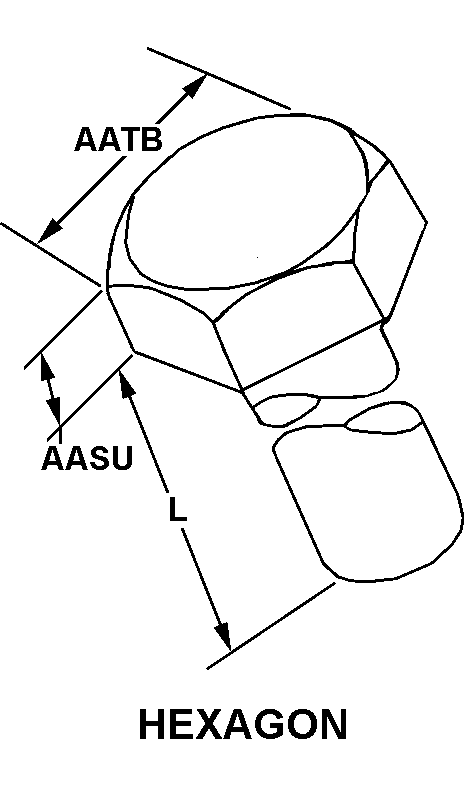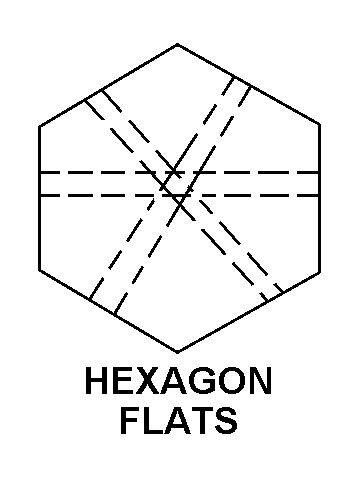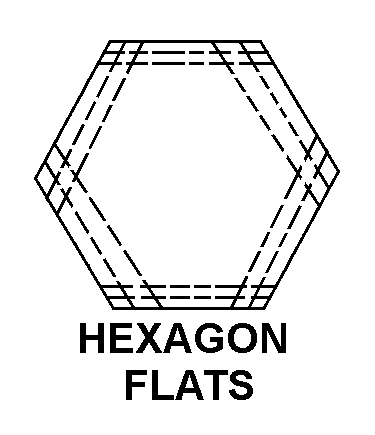5306000382022
Price Quote Get an up to date pricing and availability quote for this product. Order online or over the phone.
Quality Commitment
Serving our customers with quality and safety first.
- AS9120 Certified
- Audited supply chain
- ITAR Registered
- DDTC Registered
- HAZMAT Certified
- Customer service objectives
- Every product 100% inspected

5306-00-038-2022 Specification Set by the OEM (see RNCC code 3)
3a
RIGHT-Hand
1.875in. ⁓1-7/8"
2.812in. ⁓2-13/16"
hexagon
0.562in. ⁓9/16"
0.938in.
0.125in. ⁓1/8"
0.750in. ⁓3/4"
1
drilled
finished head
10
120000 pounds per square inch
255.0 brinell standard and 286.0 brinell standard
hexagon flats
steel or steel comp 3135 or steel or steel
sae 2340 assn std 1st material response or sae assn std 2nd material response or sae 8739 assn std 3rd material response or sae 8744 assn std 4th material response
unc
Cross Reference Parts Part numbers that meet the specification outlined on this page and set by the OEM
Identification Item Identification Guide (IIG) and Item Name Code (INC)



Definition Definition of approved item name (AIN): "BOLT,MACHINE"
An externally threaded fastener designed for insertion through holes in assembled parts and normally intended to be tightened or released by torquing a nut. the threaded and unthreaded portions are both of one nominal diameter of 0.190 inch (5 mm) or larger. The head is not designed to be held or driven with an inserted driver or by the thumb and fingers. a locking feature may be incorporated in the design of the head or threads. head dimensions and sizes of threaded and unthreaded portions shall conform to internationally recognized fastener standards. for items having a grip length portion machined to a tolerance of 0.0015 inch (0.038 mm) or less, bolt, shear. See also screw, cap, hexagon head and screw, machine.
5306-00-038-2022 Material Hazmat, Precious Metals, Criticality, Enviroment, and ESD
Indicates there is no data in the hmirs and the nsn is in a fsc not generally suspected of containing hazardous materials.
Precious metal content is unknown
The item does not have a nuclear hardened feature or any other critical feature such as tolerance, fit restriction or application.
Identification Codes
HMIC: Hazardous Material Indicator Code. A one position code that identifies a hazardous item.
PMIC: Precious Metal Indicator Code. A one position code which identifies items that have precious metals as part of their content. precious metals are those metals generally considered to be uncommon, highly valuable, and relatively superior in certain properties such as resistance to corrosion and electrical conductivity.
ESD: Electrostatic Discharge. Indicates if an item is susceptible to electrostatic discharge or electromagnetic interference damage. electrostatic discharge damage occurs when an accumulation of static electricity generated by the relative motion or separation of materials is released to another item by direct contact. electromagnetic interference damage occurs when an item comes into proximity with an electrostatic or magnetic field.
ENAC: Enviromental Attribute Code. Identifies items with environmentally preferred characteristics.
CRITL: Criticality Indicator Code. Indicates an item is technically critical by tolerance, fit, application, nuclear hardness properties, or other characteristics.






